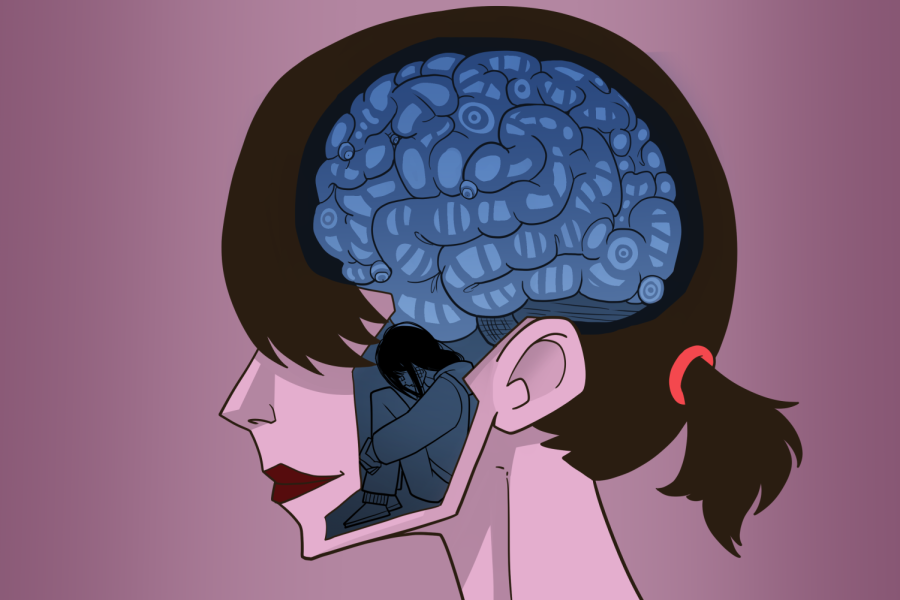OPINION: Bring the mental health boogeyman to light
May 9, 2023
There I was, at the end of my rope, sitting atop Interstate 635 at Forest Lane. I contemplated everything that had brought me to this point, and in that same moment, I questioned if life was even worth living anymore.
It was my final cry for help, the last thing I could do. I knew that I wanted to be heard. I needed to understand and be understood.
That day changed my life for the better. I finally faced the boogeyman that had kept me captive.
The feeling is terrifying for the person experiencing it and attempting to express it, yet unfamiliar and incomprehensible to those who have never encountered it. I’m talking about the things you do not speak of while you suffer in silence, things you’d be locked away for in the 19th and early 20th centuries.
It is the taboo, invisible boogeyman: mental health.
Mental health is a monster, and for so many years those suffering from these issues have lived with fear of bringing attention to them or even acknowledging that there is an issue.

As a person who has struggled with such fears and, for quite some time, had trouble coming to terms with what exactly I was feeling, it is long overdue to shine a light on these issues and confront the boogeyman once and for all. The main reasons for this fear are public, self and institutional stigma, prejudice and discrimination.
In 2021, about 57.8 million adults in the United States were living with a mental illness, according to the Substance Abuse and Mental Health Services Administration. The term mental illness includes a number of conditions varying in their degree of severity and ranging from mild to moderate to severe. Studies show that more women were affected than men, and young adults between the ages of 18 to 25 were affected at a higher rate than individuals between the ages of 26 to 49 and 50 and older.
When it comes to why this topic is rarely spoken about by those who are affected, many say they avoid or delay seeking help due to concerns that they may be treated differently. The fear of losing a job and the possibility of jeopardizing their livelihood also play a role in addressing the severity of the issue.
In my personal experience of living with depression and anxiety, I ignored the feelings I was faced with for many years because I feared no one would understand. I was uncomfortable seeking help until it was just too much to handle.
It’s time that we look toward finding a better way to address the issues that are known as “invisible diseases.” We must find a way to destigmatize mental health and bring awareness so that no one has to feel trapped or left in the dark.
We can start doing this by educating ourselves about subjects we are unfamiliar with. Ask questions and be a center of support for someone who may need a listening ear. Share experiences with one another and provide any resources that you may be aware of. Never disregard the red flags and be a safe space for the next person to feel open about the things we may not see right away.
Mental illness does not discriminate, and neither should we. It can affect anyone, but we can change the way we handle it.
Although we cannot always see the flags because it can be so easy to hide behind a mask, we can make ourselves available so that no one has to fear seeking help.





